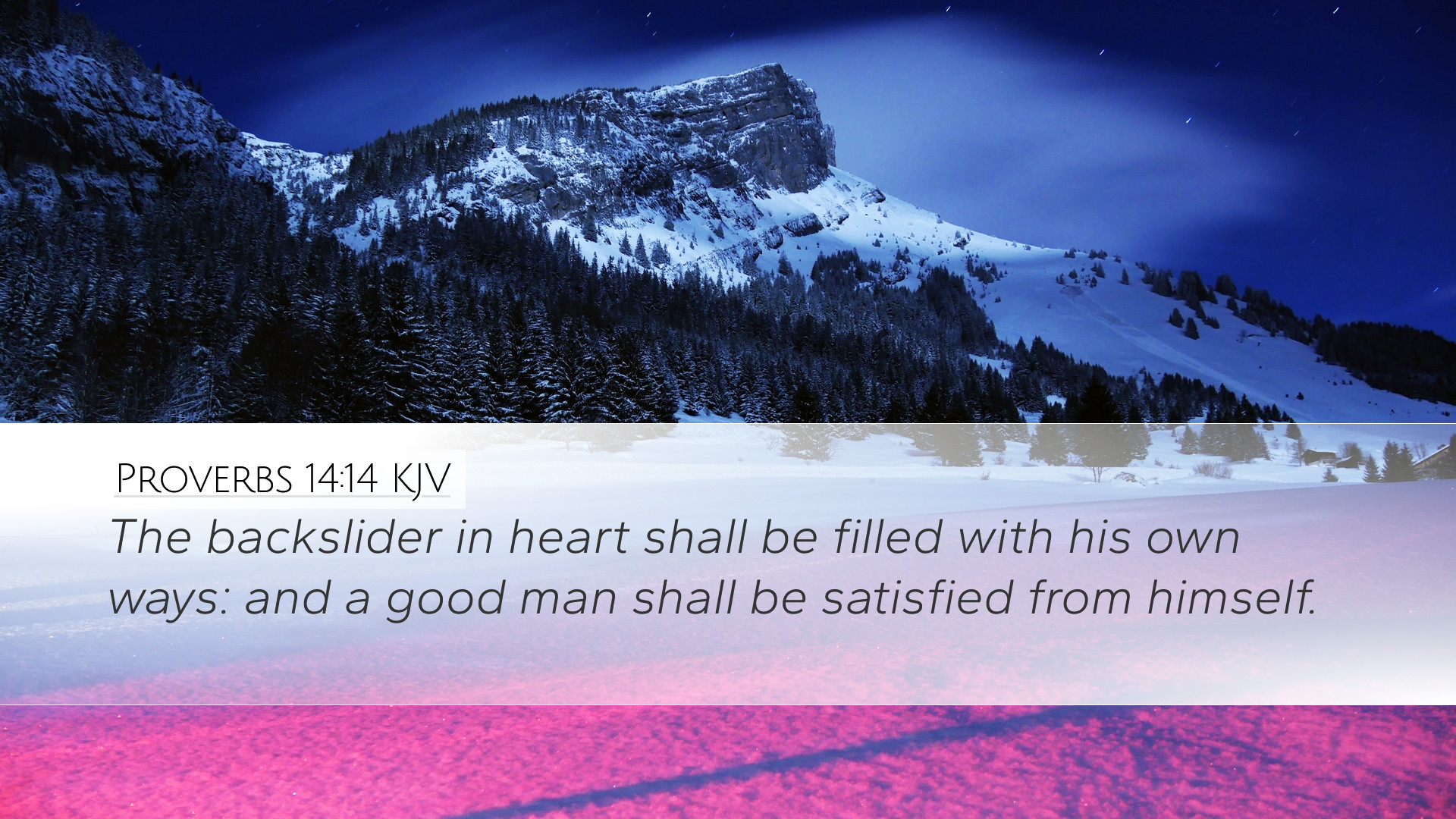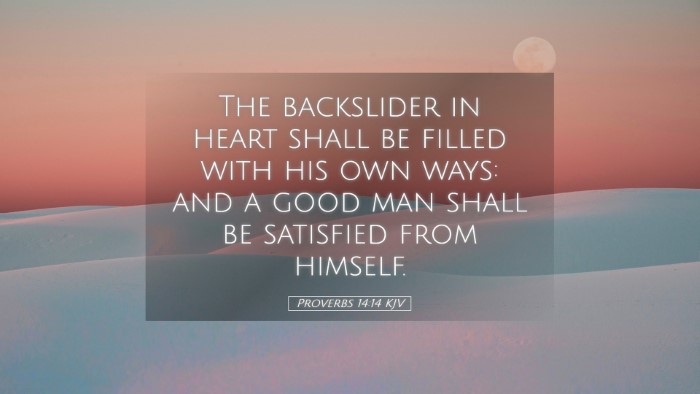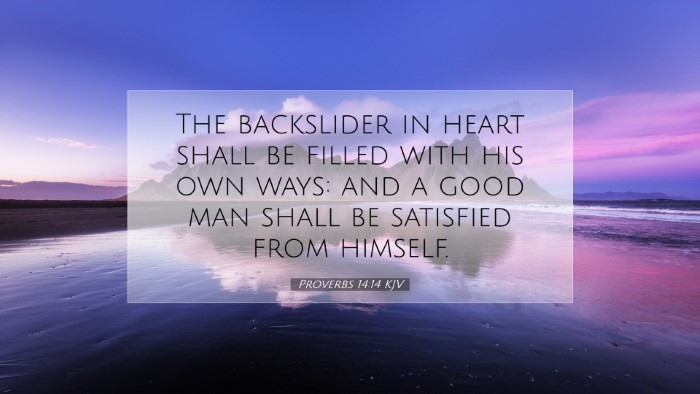Commentary on Proverbs 14:14
Proverbs 14:14 reads: "The backslider in heart shall be filled with his own ways: and a good man shall be satisfied from himself." This verse encapsulates profound truths regarding human behavior, the consequences of our choices, and the inherent nature of one’s character. Below, we explore insights from various public domain commentaries to present a detailed examination of this verse.
Understanding the Text
The verse draws a contrast between the backslider and the good man, emphasizing the outcomes tied to their respective lifestyles. A "backslider in heart" indicates an individual who, while possibly outwardly conforming to righteous practices, internally deviates from the path of integrity.
Meaning of 'Backslider'
Matthew Henry elucidates that a backslider is someone who has turned away from their original commitment to God, highlighting the internal struggle that may manifest outwardly. The term suggests a gradual process where one’s heart leads them away from divine principles.
Filled with His Own Ways
Henry further notes that those who backslide will find themselves ultimately filled with their own ways—meaning their own thoughts, desires, and sinful inclinations will lead them to dissatisfaction and eventual downfall. This is a natural consequence of straying from the divine path, as personal inclinations can stray far from godly wisdom.
Contrast with the Good Man
Albert Barnes contrasts the fate of the backslider with that of the "good man." He indicates that a good man, one who aligns himself with God’s will and maintains steadfastness in righteous living, shall be satisfied from himself. This satisfaction comes as a reward for a life lived in accordance with divine principles.
Self-Sustaining Satisfaction
Barnes points out that this self-satisfaction stems not from a self-centered perspective but from a life that bears fruit aligned with God’s intentions. The good man finds fulfillment in the repercussions of his choices, as he operates within the blessings of his faithfulness.
Theological Implications
Adam Clarke extends the discussion to the theological implications of behavior and faith. He argues that the backslider represents a critical spiritual condition where individuals may fall into belief systems that compromise their faith. Clarke stresses the importance of safeguarding one’s heart from such spiritual declines.
Spiritual Decline as a Warning
Clarke emphasizes that backsliding serves as a warning to all believers. It reflects a gradual decay of spiritual health, where one distances themselves from God’s guidance. This metaphor of 'backsliding' is akin to the allure of sin, which often appears more appealing until it brings about bitterness and regret.
Application for Believers
The verse carries practical implications for believers. First, it serves as a reminder of the necessity of vigilance in maintaining one’s spiritual commitment and integrity. Henry notes that staying steadfast in faith is essential to avoiding the pitfalls of backsliding.
Encouragement for Spiritual Growth
Conversely, the verse encourages believers to strive toward goodness, understanding that real fulfillment and satisfaction derive from living a life aligned with God’s teachings. Following the example of the good man should inspire a deeper commitment to spiritual growth and community.
Conclusion
In summary, Proverbs 14:14 serves as both a caution and an encouragement. It warns against the dangers of backsliding, highlighting the inevitable consequences of such a path, while simultaneously uplifting the virtues of steadfastness and righteousness. As Barnes concludes, embracing the life of the good man leads not only to personal satisfaction but to overflowing blessings that extend beyond oneself.
This duality within the verse, articulated through the insights of esteemed commentators like Matthew Henry, Albert Barnes, and Adam Clarke, encourages believers to examine their hearts continually, ensuring that they remain on their divinely ordained paths.


